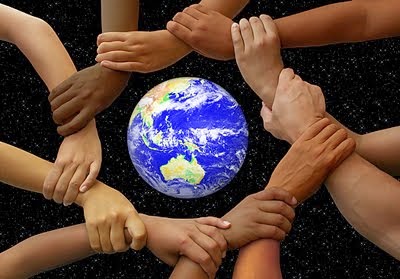Muhammad Muhsin Ibrahim
@muhsin234 (Twitter)
An investigation by the World Value Survey discovered that India and Jordan
It is worth noting, though, that we are individuals. Some equally ‘light-skinned’ Indians would treat you dearer than your own dark-skinned brethren. I have met some such individuals, one of whom once took my wife and me to his house, introduced us to all his family members in different houses, and literally begged us to stay the night. Another, a faculty member I met on my first day at the University, has since been very concerned about what goes on with me. These are only two; there are many others. So, the real situation on the ground may not be as exactly reported by the survey. But it certainly happens. I have got three instances to share.
The first occurred between my wife and the daughter of our landlady, who may be called a “spinster” in the Indian context. My wife often urges her to get a husband, for she wants to grace her wedding before we return to Nigeria Nigeria synecdochically for Africa . Her reason, she further elaborated, was that they are black.
The second happened to me. A friend ‘wonderingly’ asked me why my skin was black? She was flippantly curious whether or not that had something to do with the weather of our continent, and that’s it! Her question astonished me, for she has known me for over a year. I couldn’t help imagining what she thought all that while, which planet had she been thinking I was from, or what in God’s creations she must have been thinking of me as? Thanks to Allah, my wife and a few other Africans around are much fairer than many Indians this ‘broadminded’ pal knows. In fact, India
The third and latest happened yesterday (Saturday) in class! However, the perpetrators unashamedly hid under the same façade as my friend above. I told them, in a strong tone, that as believers, we should take into cognisance that that’s how The Creator wants to see us. Period! To them, I must say, that was nothing wrong.
More disconcerting is the fact that racism goes beyond almost everything—religion, region, kinship, etc. As a proud Muslim, I often say that Islam is plainly anti-racism. The renowned African-American Muslim activist, Malcolm X, said the same in Speech, Prospects for Freedom (1965) that: “I am a Muslim and ... my religion makes me against all forms of racism.” However, Jordan , an Arab Muslim country, is India’s twin sister in this regard. Not only that, other Muslim nations, including Saudi Arabia, Egypt, Iran and Indonesia, are second to Jordan and India in the ranking.
The U.S, seen as the most ‘civilised’ country in the world and with a biracial president, is not yet racism-free. A few weeks ago, a white police officer shot dead an unarmed black teen in what many attributed to a racially-motivated case. So, the situation is awfully pathetic beyond imagining. Ignorance is embedded in the minds of millions.
I thank God that all the ‘racial’ attacks are so far bearable, though rarely mind-wrecking. I use a formula: looking but not seeing; hearing but not listening; and understanding but not reacting to anything discriminatory. I have been here for a while. Once my mission (study) is accomplished, I will bid farewell to all and to India

Comments
Post a Comment